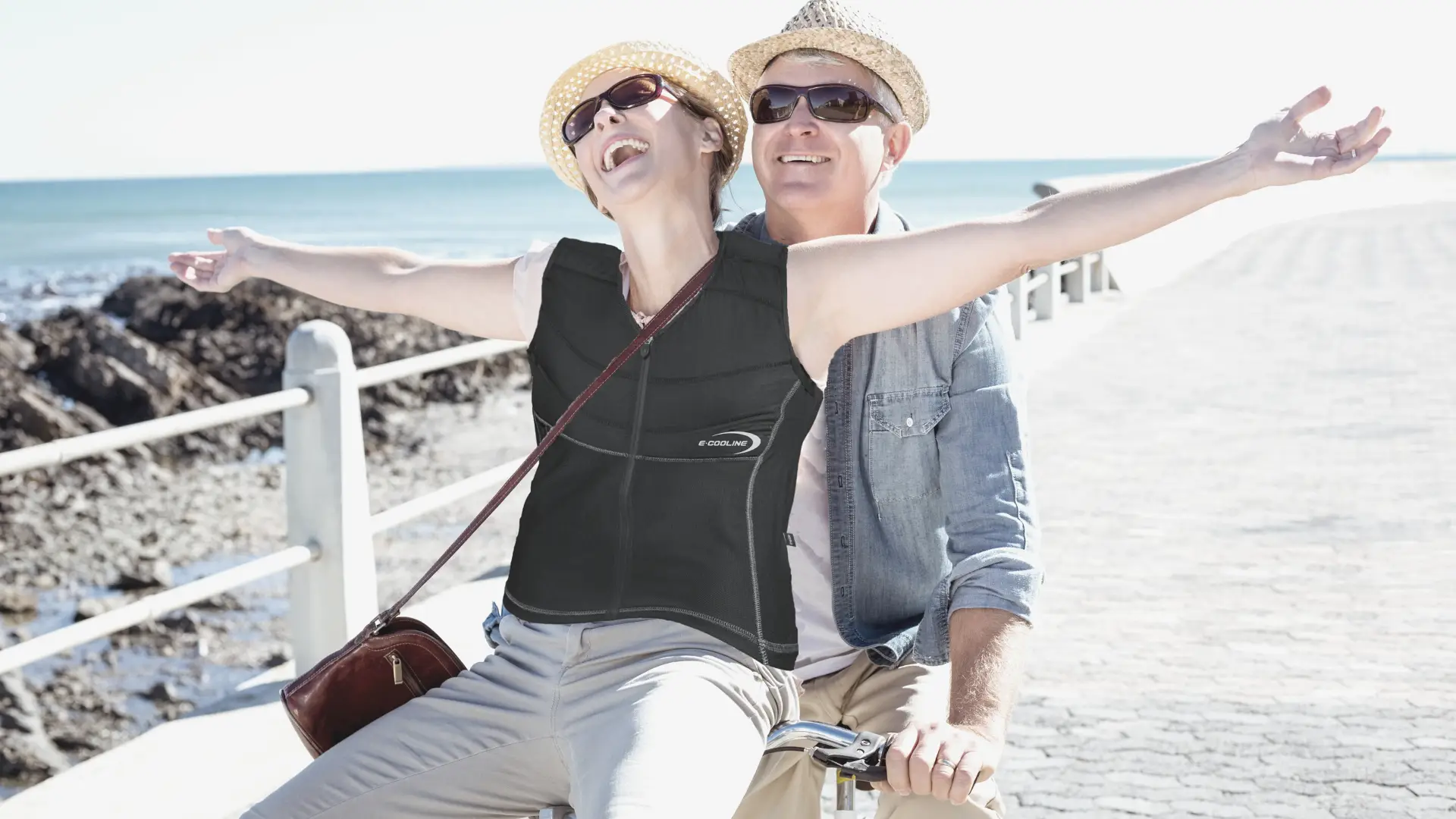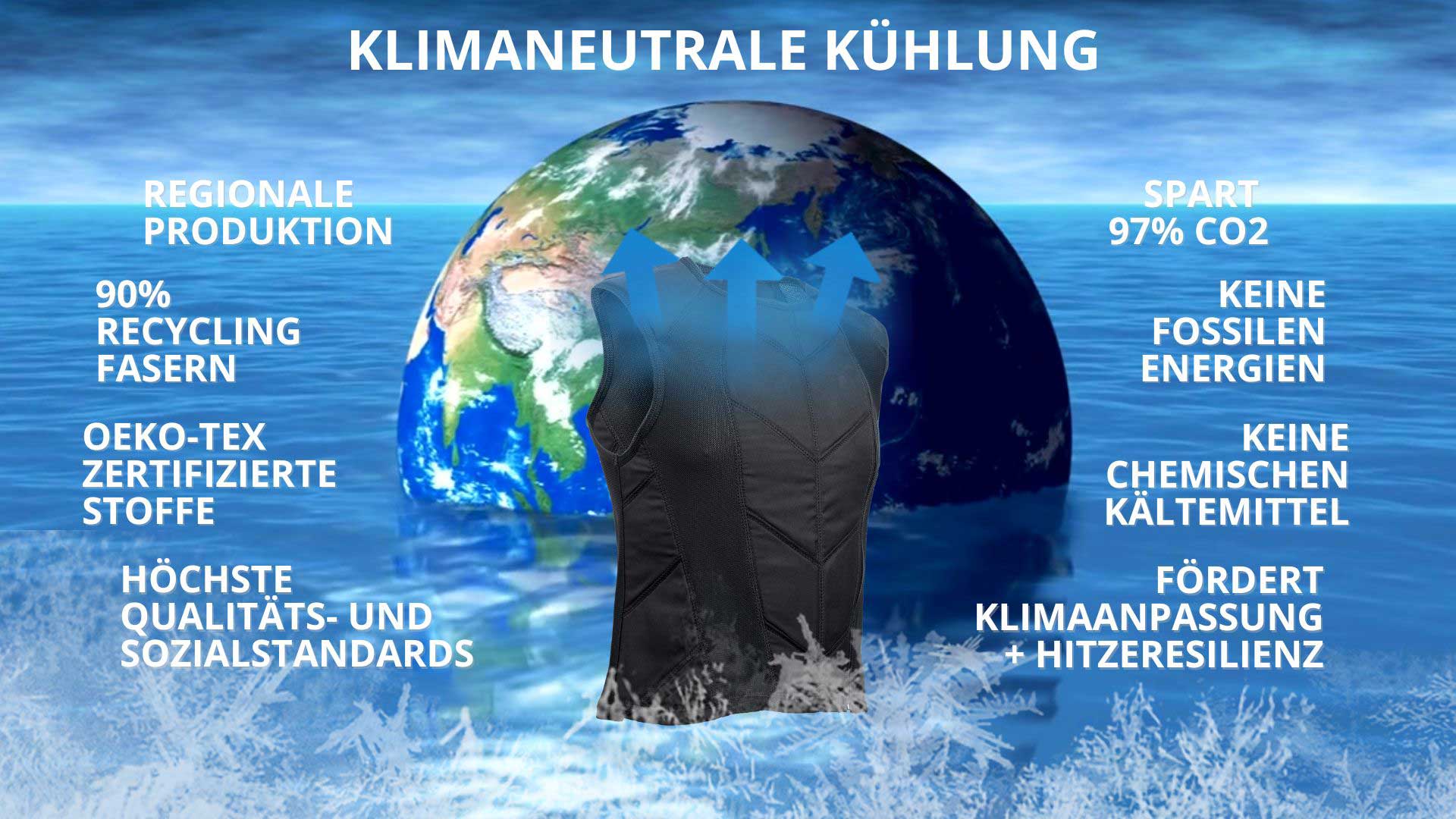AVOID HEAT RISK WITH CARDIOVASCULAR PROBLEMS
When it is hot, the number of deaths from heart failure or stroke increases. This is what the researchers Dr. Alexandra Schneider and Dr. Susanne Breitner from Helmholtz Zentrum München discovered through epidemiological studies and published these results in the scientific journal ‘Heart’.
This means that cardiovascular patients have a higher risk of dying in summer from the corresponding secondary diseases. Many statistics show that the number of deaths increases with high temperatures. In the heatwaves of the past summers in Western Europe, there were up to 22,000 additional deaths per year. “Our results confirm findings from our earlier studies,” says Alexandra Schneider.
HEART FAILURE, ARRHTHMIAS, STROKES: OLDER PEOPLE IN PARTICULAR ARE AT RISK
Between 1990 and 2006, nearly 188,000 deaths from cardiovascular diseases were evaluated in the cities of Munich, Nuremberg and Augsburg. They showed that even a temperature rise from 20°C to 25°C increased the number of deaths due to cardiovascular diseases by 9.5%. These effects were particularly clear for mortality due to heart failure, arrhythmias and strokes. One of the reasons is that high temperatures can alter blood clotting and make the blood more viscous. This increases the risk of thrombosis. The heart rate also increases in the heat, which has already caused alarm in other studies. A study of firefighters exposed to high temperatures also had similar results. Here, too, the risk of death increased in extreme temperatures.
9.5 PERCENT MORE DEATHS IN HEAT
When temperatures are extremely high or low, the number of deaths from heart failure or stroke increases significantly. Researchers at Helmholtz Zentrum München were able to impressively prove this finding through epidemiological studies.
TIME
FOR COOLING DOWN
EXHAUSTION VS. ENERGY THROUGH COOLING
The good news: something can be done. Because “if you know the health effects of the air temperature, you can identify population groups that are particularly at risk and take preventive measures,” says Alexandra Schneider.
Cooling functional clothing significantly reduces the heat stress on the cardiovascular system at high temperatures.
Even in offices or workshops without air-conditioning, cooling waistcoats, cooling shirts, but also cooling caps, bandanas and neck scarves provide simple, fast and effective heat protection, counteract exhaustion and help to improve concentration and performance.
Patients and studies in clinics confirm the effectiveness of the E.COOLINE cooling vests.
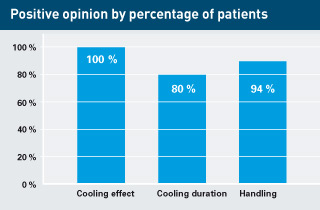
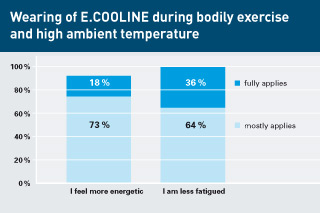
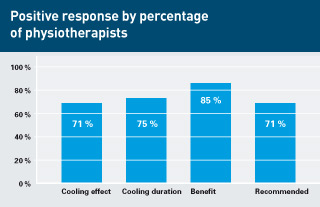
EXERCISE IN THE HEAT STRESSES THE CIRCULATORY SYSTEM
High temperatures demand maximum performance from our cardiovascular system, as the body suffers from fluid loss and heat accumulation in hot weather.
Cardiovascular patients who exercise in the heat are particularly at risk from these stres But older people are also affected because, on the one hand, the feeling of thirst decreases with age, so that often too little fluid is taken in over long periods of time. On the other hand, the ability to sweat decreases in old age, thus reducing the possibility of heat dissipation. Both can ultimately lead to heat accumulation with a sharp rise in body temperature, up to and including heat stroke or even the failure of vital organs.
However, these effects can be prevented with appropriate cooling.
"I am much more relaxed now"

PREVENTION IS IN DEMAND
When temperatures are high, people often call for more air-conditioning systems. However, these are cost-intensive, both to purchase and to maintain. In addition, the energy demand increases CO2 emissions and thus intensifies climate change with even more hot days in the future.
A climate-neutral air-conditioning system to put on is needed. E.COOLINE cooling functional clothing cools for hours with 660 watts/l and looks good too. This can noticeably reduce the temperature load on hot days.
However, the focus is not only on more severe cardiovascular diseases. People with low blood pressure can also suffer circulatory collapse on heat days.
The same applies to the elderly, children and pregnant women, who are simply more sensitive and cannot cope with the high temperatures.
Often people are not aware of the risk. Companies or their company doctors are also often unaware that their employees are at risk. Here, further education is also important to protect those affected on heat days.
